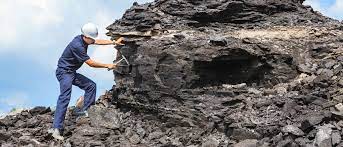
A geologist is a scientist who studies the solid, liquid, and gaseous matter that constitutes the Earth and other terrestrial planets, as well as the processes that shape them. Geologists usually study geology, although backgrounds in physics, chemistry, biology, and other sciences are also useful.
Geologists work in the energy and mining sectors searching for natural resources such as petroleum, natural gas, precious and base metals. They are also in the forefront of preventing and mitigating damage from natural hazards and disasters such as earthquakes, volcanoes, tsunamis and landslides. Their studies are used to warn the general public of the occurrence of these events. Geologists are also important contributors to climate change discussions.
Geologists work in a variety of settings. These include: natural resource companies, environmental consulting companies, government agencies, non-profit organizations, and universities. Many geologists do field work at least part of the time. Others spend their time in laboratories, classrooms or offices. All geologists prepare reports, do calculations and use computers.
Although a bachelor’s degree is required for entry-level employment, many geologists earn master’s and/or doctorate degrees. The advanced degrees provide a higher level of training, often in a geology specialty area such as paleontology, mineralogy, hydrology, or volcanology. Advanced degrees will often qualify the geologist for supervisory positions, research assignments, or teaching positions at the university level. These are some of the most sought-after jobs in the field of geology.
Picture Credit : Google



